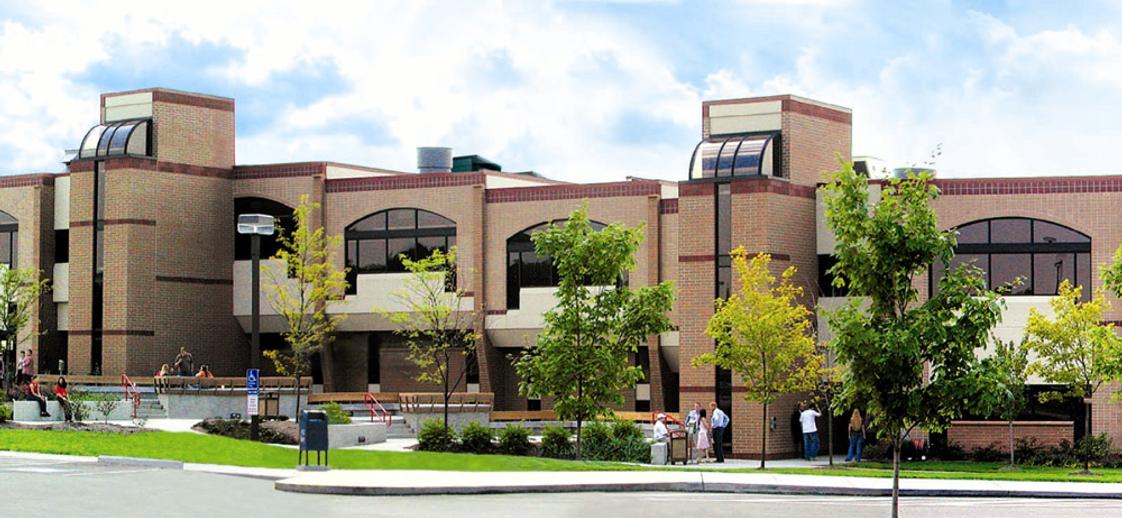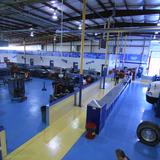- With more than 30 degree and non-degree programs, Pittsburgh Technical College provides education that prepares our students for career success. The learning is immersive, project-based, and as real as it gets.
- All degree-seeking, on-site students have internships or clinical rotations before they graduate; 2 out of 3 available PTC students accepted job offers from their internship employers, and 97% of available graduates work in their career field.*
- PTC is a nonprofit institution.
- *Showcases graduates from 2017 classes. Data includes those who were available for work and were offered and/or received career search assistance from 1/1/2017-4/30/2018. Includes full-time, part-time, or freelance positions. Visit PTCollege.edu/employmentstats to learn more.
School Highlights
Pittsburgh Technical College served 1,424 students (88% of students were full-time).
The college's student-teacher ratio of 6:1 was lower than the state community college average of 15:1.
Minority enrollment was 30% of the student body (majority Black), which was less than the state average of 48%.
School Overview
Pittsburgh Technical College
(PA) Community College Avg.
Carnegie Classification
Baccalaureate/Associate's Colleges: Associate's Dominant
Not applicable, not in Carnegie universe (not accredited or nondegree-granting)
Institution Level
Four or more years
At least 2 but less than 4 years
Institution Control
Private not-for-profit
Private not-for-profit
Year Founded
1946
Total Faculty
239 staff
59 staff
School Calendar
Student Body
Total Enrollment
1,424 students
461 students
Student-Teacher Ratio
6:1
15:1
# Full-Time Students
1,252 students
325 students
# Part-Time Students
172 students
136 students
# Enrollment Undergraduate
142 students
298 students
# Full-Time Undergraduate Students
1,252 students
326 students
# Full-Time Graduate Students
n/a
10 students
# Part-Time Undergraduate Students
172 students
151 students
# Part-Time Graduate Students
n/a
12 students
Total Dormitory Capacity
494 students
330 students
% American Indian/Alaskan
n/a
n/a
% Asian
1%
5%
% Hispanic
2%
11%
% Black
10%
15%
% White
70%
52%
% Hawaiian
n/a
3%
% Two or more races
4%
3%
% Non Resident races
n/a
1%
% Unknown races
13%
10%
Diversity Score
0.48
0.68
College Completion Rate (Students who graduate in less than 4 years)
54%
59%
College Completion Rate (Students who graduate in 4 years or more than 4 years)
54%
36%
Average Graduate Earnings (10 Years)
$37,300
$34,900
Tuition and Acceptance Rate
Private State Tuition Fees
$15,657
$17,231
% Students Receiving Some Financial Aid
97%
88%
Median Debt for Graduates
$17,416
$13,000
Median Debt for Dropouts
$5,530
$6,260
Acceptance Rate
85%
78%
SAT Reading
n/a
460
SAT Math
n/a
470
SAT Writing
n/a
435
ACT Composite
n/a
20
ACT English
n/a
20
ACT Math
n/a
21
ACT Writing
n/a
7
Source: 2024 (or latest year available) Integrated Postsecondary Education Data System (IPEDS) , School Administrators
Frequently Asked Questions
How much does Pittsburgh Technical College cost?
Pittsburgh Technical College's private state tuition is approximately $15,657.
What is the acceptance rate of Pittsburgh Technical College?
The acceptance rate of Pittsburgh Technical College is 85%, which is higher than the state average of 78%.
Recent Articles

Community College Policies and Financial Aid Guide 2026
A 2026 guide to community college policies and financial aid, including FAFSA updates, state aid, tuition rules, and smart planning tips.

Get Better Grades in Community College by Being Social (2026 Update)
Learn how being social in community college boosts grades, retention, and career success. Updated 2026 strategies for academic achievement.

Navigating Community College as an Adult Learner in 2026
A practical 2026 guide for adults returning to community college, covering admissions, financial aid, career planning, and flexible learning options.







